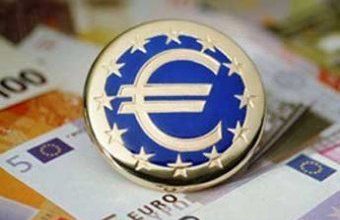No tantrums about a strong euro
European companies do not hide the alarm: the euro exchange rate and oil prices are breaking record after record. Big business requires EU governments to force the European Central Bank to lower euro rates. Ernest-Antoine Sellier, President of the Business Europe Alliance, representing 20 million European companies, calls for evaluating these processes more carefully. But does not deny that the global financial crisis threatens the economy of Europe.
EuroNews: Mr. Sellier, the financial crisis risks escalating into a global economic one. And all this is against the backdrop of the debates about inflation, purchasing power, social insecurity and the problems of European companies. Don’t you think that the authorities cannot give up all their efforts to save the financial and banking system?
Saler: Yes, as you know, the situation is very uncertain. This uncertainty gives rise to a problem, because when you do not know and cannot predict the magnitude of a crisis or its duration in the economy, you start to act blindly. It is understood that governments are increasingly worried about what is happening. And one thing is inevitable: if the crisis grows to such a scale that government intervention is required, then, in my opinion, the governments of different countries will have to act together.
EuroNews: Are financially healthy European companies?
Salier: European companies are competitive, there is no doubt about that. If this is not so, then such companies are either ruined or bought by other firms, so the European corporate system is more than competitive. But it is clear that if the banking crisis does not slow down, then this will inevitably result in a reduction in lending to companies. But we know that enterprises need loans like oxygen.
EuroNews: Let’s talk about the currency crisis. The euro is approaching $ 1.6, oil has long been worth more than $ 100 per barrel. What are your implications for European companies?
Saler: Strengthening the euro – or rather, the uncontrolled strengthening of the euro – does not benefit Europe because it damages exporters, especially in areas sensitive to currency fluctuations, such as aircraft manufacturing, industry, and trade in luxury goods. But we will call a spade a spade: the rise in oil prices, which is a key factor in inflation and other economic difficulties, Europe can offset by a strong euro. We pay 40% less for oil, and God alone knows how much we would pay for imported fuel, if not for the difference between the dollar and the euro.
EuroNews: Some large European companies have already announced the possibility of delocalization – that is, the transfer of production lines from Europe to regions with cheaper labor – due to the strengthening of the euro against the dollar. Is this the only possible solution for large corporations?
Saler: In five years of complete globalization, when the delocalization of production has become commonplace, 9 million jobs have been created in Europe. So there is no need to exaggerate the consequences of the phenomenon, as politicians sometimes do, which delocalization simply enrages. It happens that the delocalization of production is necessary to maintain the competitiveness of Europe. For example, part of the components is produced where it is cheaper – in this case, delocalization helps to maintain high industry activity in Europe itself. So we will be grateful to developing countries for benefiting from the growth of their economies.
EuroNews: Today, European workers demand more participation in the profits of their companies. For their part, employers complain about the excessive rigidity of the social system. So, is there a confrontation between Social Europe and Corporate Europe?
Saler: We are very proud of the European social model, the essence of which can be expressed as follows: when the economy grows, part of this growth is reflected in the organization of social protection. A good example is the Scandinavian countries. They have what is called a flexible social protection system. The expression is heavy, but it is about the following: the state protects not the unemployed, but the employee, does everything so that the person, having passed the training, as soon as possible finds a better job.
EuroNews: To achieve this, is it time for European countries to sacrifice budget discipline in the name of enhancing economic growth and employment?
Saler: Corporations have an unequivocal opinion on this issue: increasing the budget deficit, no problems can be solved. And we, the companies, are categorically against the softening of the European Stability Pact. We are against easy ways, because then we will face the need to take measures to improve the situation.
EuroNews: Mr. Saler, you headed the MEDEF (French Federation of Entrepreneurs), which today is experiencing an unprecedented condemnation. Can a union of employers pay trade unions for social stability?
Salier: Of course not. The disclosure of the fact that one of the federations comprising MEDEF was convicted of absolutely archaic and, of course, criminally punishable behavior, plunged the union of French employers and the country’s public opinion into a state of shock. However, the reaction of MEDEF, as well as the UIMM affected by this scandal, was quick and correct. This suggests that the system is transparent and modern. They say that this is a thing of the past. In my opinion, this problem is being addressed with a number of excellent initiatives. And I, one of the founders of MEDEF, are pleased to see that the organization reacts to such things exactly as it should. So, she will overcome this difficult crisis.
This post is also available in:
 English
English  Русский (Russian)
Русский (Russian)




